By Wayne Gillam | UW ECE News
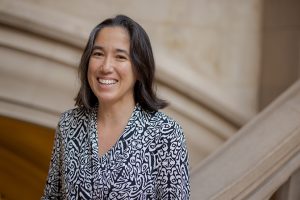
The new UW Graduate Certificate in Quantum Information Science and Engineering was established fall quarter 2022 by a multidisciplinary faculty group led by Kai-Mei Fu (above). Fu is the Virginia and Prentice Bloedel Professor of Physics and Electrical and Computer Engineering at the University of Washington. The Certificate can be completed concurrently with a master’s or doctoral degree, and it prepares students for careers and leadership roles in fields related to development of quantum-enabled technologies. Photo by Ryan Hoover
This fall, a new graduate certificate program at the University of Washington began training students in an emerging, fast-growing field that blends information science based on principles of quantum mechanics with development of new technologies. The UW Graduate Certificate in Quantum Information Science and Engineering provides students with a robust, interdisciplinary experience that explores how this new field relates to other areas within science, technology, engineering and mathematics. The Certificate program was established by a multidisciplinary faculty group and is directed by Kai-Mei Fu, who is the Virginia and Prentice Bloedel Professor of Physics and Electrical and Computer Engineering at the University of Washington. Fu led the group in development and implementation of the Certificate curriculum, which was designed to complement and augment students’ existing degree programs. Courses are taught by a select number of UW faculty that have a wide range of expertise in the field. The Certificate can be completed concurrently with a master’s or doctoral degree, and it prepares students for careers and leadership roles in fields related to development of quantum-enabled technologies.
“The people who tend to be drawn to this program are students who have been hearing about quantum information, realize the impact scalable quantum computing systems can have and want to understand how their discipline can actually help make this impact a reality,” Fu said. “If you want to make a difference in this field, then you need a solid base. And if you want to get that base, then you should get the Certificate.”
Interdisciplinary curriculum for graduate students
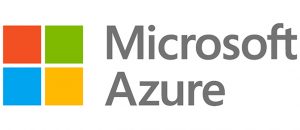
Students in the program will have access to quantum cloud computers through Microsoft Azure, which will allow them to run experiments and explore how real quantum devices behave in practice.
The student cohort pursuing the Certificate is very diverse, being over 35 percent women and bringing together 60 students from five different departments on campus. Most students are research trainees in the National Science Foundation-funded Accelerating Quantum-Enabled Technologies program; however, the Certificate program is open to any UW graduate student who has met the required prerequisites. The program is an especially good fit for students interested in quantum information science who are studying electrical and computer engineering, physics, computer science and engineering, chemistry, or materials science and engineering. The program curriculum is structured to enhance a graduate student’s research focus.
“This fall, we have three intro courses in the Certificate program that target the expertise of the people we’re training,” Fu said. “We have Introduction to Quantum Information Science and Engineering for Chemists and Materials Scientists, which is offered through the chemistry department, Quantum Information offered through the physics department, and Introduction to Quantum Computing taught through the Allen School. All these courses work together, and any one of them can be a student’s first introductory course.”
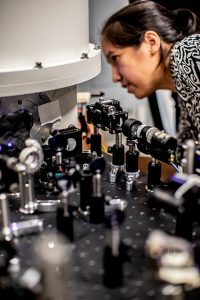
Fu is director of the Quantum Defect Laboratory at the UW and co-chair of UW QuantumX, which brings together quantum information science and engineering researchers and educators from across campus. Fu’s strong network and connections, along with support from colleagues, enabled the Certificate program to be quickly established. (Above) Fu inspecting equipment in the Quantum Defect Laboratory. Photo by Dennis Wise | University of Washington
Students in the program will have access to quantum cloud computers through Microsoft Azure, which will allow them to run experiments and explore how real quantum devices behave in practice. They will also gain experience participating in team-based projects that are important to the field and relevant to future employers. Courses that explore cross-disciplinary topics, such as EE 500Q: Quantum Information Science and Engineering Seminar (offered during winter quarter at UW ECE), are at the heart of the Certificate program. EE 500Q provides weekly presentations from quantum scientists across multiple disciplines, covering industry, academia and National Laboratory experiences while exposing students to potential research and career directions. The Certificate program also offers opportunities to make connections with many other people working on quantum-enabled technologies. Fu said that these connections could help students better understand where their own research might fit into a broader picture. Fu added that the projects and teamwork, along with the program courses, help to create a common language between different disciplines.
“If you want to make a difference in this field, then you need a solid base. And if you want to get that base, then you should get the Certificate.” — Professor Kai-Mei Fu
“The reason why an interdisciplinary approach to quantum information science and engineering is important is that, right now, there are challenges at every single level of the quantum hardware stack,” Fu said. “So, if we think of the materials that are developed that go into the devices, the devices that go into the architecture and that on the architecture you’re running software, which is an implementation of some algorithm, you can see how the entire stack is connected. Everything needs to be co-designed and developed together to optimize and maximize performance in these systems.”
The need to develop a workforce with interdisciplinary expertise in this emerging field was behind the idea for the Certificate program itself. Fu talked about the growing demand for those with a strong background in quantum information science and engineering and that National Laboratories, in particular, are eager to hire people with skills in this area.
“Potential employers need really good electrical engineers, computer scientists, chemists and physicists that understand quantum information science and engineering,” Fu said. “Based on that knowledge, it became clear to me and my colleagues that a certificate program, something that could augment a graduate-level degree and demonstrate expertise connected to the individual’s primary research focus, would best serve our students.”
Taught by outstanding faculty at a world-class university
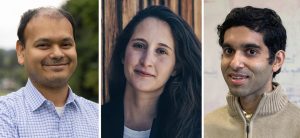
UW ECE professors Arka Majumdar, Sara Mouradian and Rahul Trivedi (from left to right) are instructors in the Certificate program. Majumdar also co-chairs UW QuantumX alongside Fu, and Mouradian will be leading the graduate-level Quantum Information Practicum, which brings students together into teams to work on academic and industry-sponsored projects.
To that end, Fu and her colleagues assembled a team of UW faculty who are leaders in their respective areas of expertise to teach this new curriculum. Fu noted the enthusiasm and support across campus for the Certificate, which enabled the program to be quickly established to meet the needs of a rapidly advancing field.
“The University of Washington has very open, curious and bold faculty who are willing and able to expand research directions across different disciplines,” Fu said. “Even in universities that have had a strong footprint in quantum for a long time, it’s been in specific departments. What is exciting here is that we span a number of University units and departments.”
Fu is a faculty member of the Molecular Engineering & Sciences Institute, the Clean Energy Institute and the Institute for Nano-Engineered Systems. These sorts of cross-campus connections, combined with co-chairing UW QuantumX alongside Arka Majumdar, an instructor in the Certificate program who is a UW associate professor of physics and of electrical and computer engineering, provided Fu with a strong network to draw from.
“QuantumX supports research, training and curriculum development in this area,” Fu said. “Many of the core faculty in the Certificate program are also active faculty in QuantumX. So, it’s all part of a rich ecosystem on campus in quantum information science and engineering.”
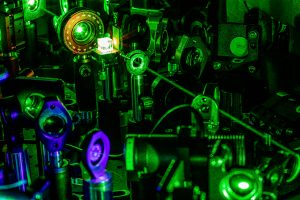
As director of the Quantum Defects Lab, Fu’s research focuses on identifying and controlling the quantum properties of point defects in crystals, which has potential applications for both information and sensing technologies. Students pursuing the Certificate stand to benefit from Fu’s expertise as well as that of her colleagues teaching in the Certificate program. Photo by Dennis Wise | University of Washington
The Certificate program has received critical support from the UW College of Engineering, which in 2020 launched a cross-departmental faculty cluster hire in quantum information science and technology. The initiative included new faculty hires in the Paul G. Allen School of Computer Science & Engineering, the UW Department of Materials Science & Engineering and the UW Department of Mechanical Engineering. At UW ECE, the cluster hire brought on board assistant professors Sara Mouradian and Rahul Trivedi. Both faculty members are instructors in the Certificate program, and Mouradian will be leading the graduate-level Quantum Information Practicum, which brings students together into teams to work on academic and industry-sponsored projects.
“I’m excited to teach this capstone course,” Mouradian said. “It’s rare to have such a hands-on course at the graduate level, and it will be a great opportunity for students to take the information they’ve learned in the Certificate program and put it into practice while gaining exposure to industry and National Labs.”
Fu noted that studies led by the National Science Foundation have shown that participating in smaller, independent team projects early in a doctoral degree program can help to accelerate completion of the degree. So, one of the Certificate program’s aims will be to teach graduate students project management and team skills in quantum information science and engineering early in their academic careers. Fu said that there was excitement among faculty about this new capstone course, and combined with other courses in the Certificate program, what will be offered to graduate students overall.
“We’ve built a really serious program in this area, one that is at the forefront of research and education,” Fu said. “Our students will receive a solid foundation, and they are going to go out and make an impact in this field when they graduate.”
To learn more, visit the UW Graduate Certificate in Quantum Information Science and Engineering webpage on the QuantumX website. UW students interested in and eligible for the program should contact Program Coordinator Madeline Miller for information or to notify intent to pursue the Certificate.

